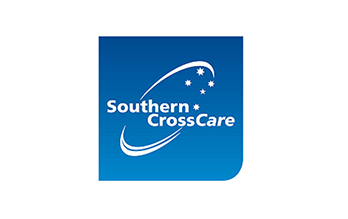Project summary
Southern Cross Care in partnership with Bond University has been awarded an ARIIA grant for their ‘Better discharge pathways for community-dwelling aged care clients following short-term restorative programs’ project.
The Short-Term Restorative Care (STRC) program is an eight-week government funded initiative that aims to increase the functional health of older Australians. Southern Cross Care (SCC) delivers a multidisciplinary evidence-based version of STRC that significantly increases clients’ physical and mental wellbeing, self-rated health, and quality of life regardless of their age, level of disability or comorbidities.
This project will address these gaps by formalising SCC’s STRC delivery model within a Restorative Program Manual and by designing and trialling a Self-Management Tool to empower sustained engagement in beneficial exercise and allied health therapies (services) based around client goals, circumstances, and local service availability.
The Self-Management Tool and Restorative Program Manual will optimise participation and discharge outcomes for STRC program participants and have national implications for the healthy ageing of older community dwelling Australians. This project has been positively endorsed by the Department of Health Community Aged Care Reform Group.
Project outcomes
Background and Aims
The project aimed to improve self-motivated discharge planning among older clients exiting short-term, reablement focused programs such as Short-Term Restorative Care (STRC). The primary modifier of behaviours for participants was a co-designed self-management workbook, given to clients at program admission and referenced by allied health clinicians as part of the client STRC episode.
The workbook was designed following an extensive co-design process with both staff and previous STRC clients. Staff were trained in the project to support client workbook utilisation. Fifty two clients entered STRC during the workbook dissemination period, with 26 accepting the resource. Feedback from clients and staff suggested the workbook was received well and had anecdotal benefit. However, acceptance of the workbook was influenced by the clients’ level of resilience at program admission. While further data analysis are forthcoming, an initial investigation showed improved self-rated health and physical wellbeing among low and high functioning workbook users, respectively, post STRC.
The workbook will continue to be used by SCC among clients entering short-term reablement programs who match the identified criteria for engagement. Most recently, the workbook has received attention from the Department of Health & Aged Care, and SCC hope it could inform a National resource.
While these conversations continue, the workbook will be available on request from the project lead. For SCC clients, and the broader sector, the workbook complements a number of SCC online resources aimed at positively modifying health literacy. SCC will continue to disseminate project outcomes via their social and media platforms with the hope other aged care providers may take an interest in the workbook as a possible modifier for their clients health self-management.

